Daniel Everett on the enrichment to be gained from connecting with diversity
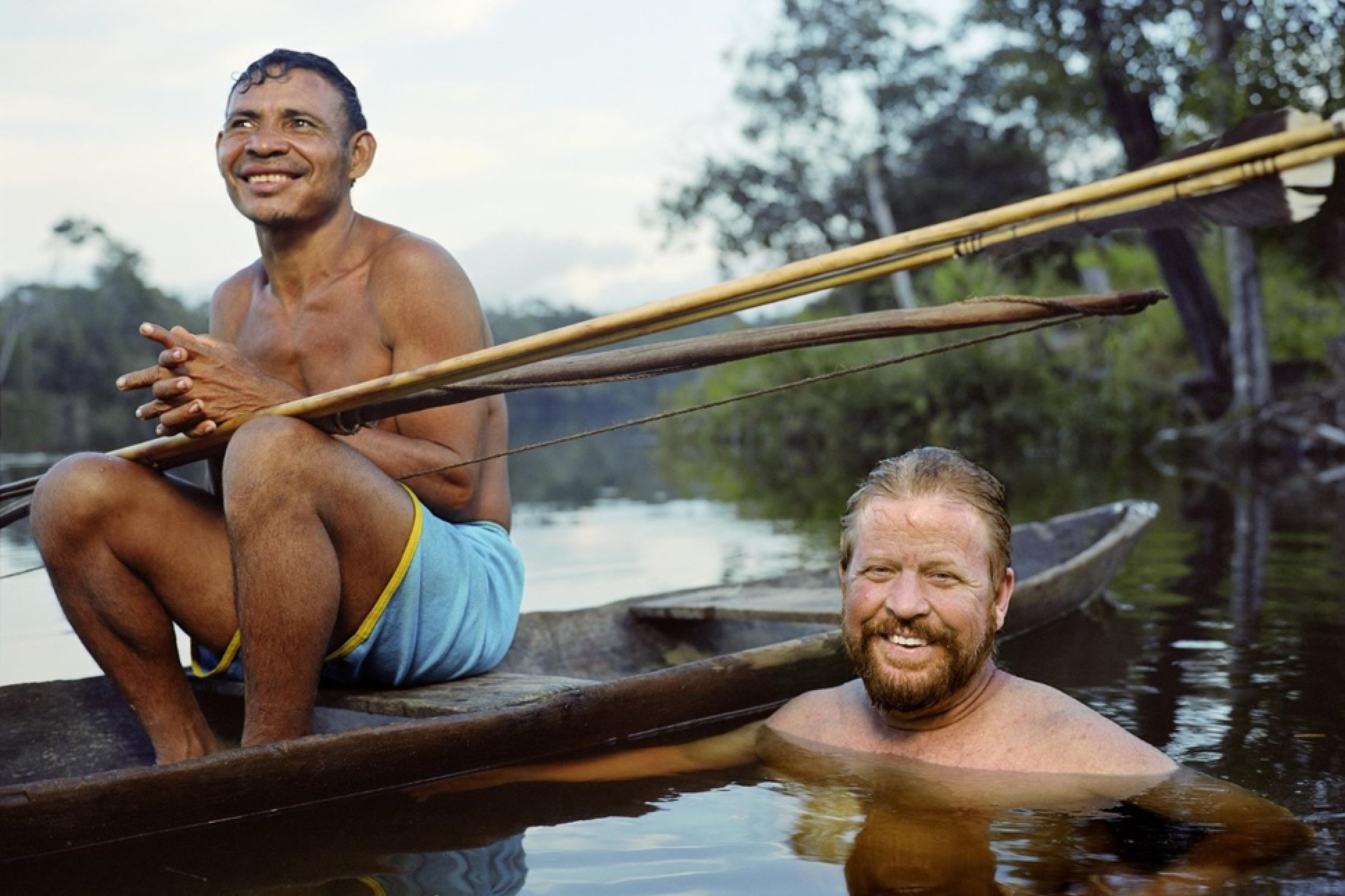
Back in the 1970s a linguist and missionary, Daniel Everett, arrived – along with his family – at the isolated Pirahã village in the Lowland Amazonia region. The purpose was clear: spending some time in the jungle, doing the missionary work of bringing the Christian God to the Pirahã people’s lives, and studying their language. But the tribe’s community, their language, behaviour towards one another, and way of perceiving time had a considerably more transformative effect on Everett’s life than he had on theirs. Now a Professor of Cognitive Sciences, in this interview he shares his thoughts on why submissive learning is the way to understand things.

Daniel Everett is a linguist, professor and book author, who is best known for his long-term on-site research of the Pirahã people and their language when living with them in their isolated community in Brazil. Currently the Trustee Professor of Cognitive Sciences at Bentley University in Waltham, Massachusetts, his main teaching and research interests are in the evolution of human behaviour, cross-cultural communication, anthropology, cognitive sciences, the nature of language, language evolution, philosophy of language and philosophy of mind. Everett has lived in the Amazonian jungle for nearly 8 out of the last 30 years, studying little or never-previously studied Amazonian languages. He has published more than 100 scientific articles and 11 books.
One of the strongest messages that we can take from your personal story is the importance of meeting people that are different from ourselves in order to be able to learn new things.
In all modern cities there are diverse populations. I think it’s very important that we do not just have friends that look like us and talk like us, but that we make friends with different sorts of people.
I tell people: If you’re in a meeting and everyone is your same skin colour, talks your language and is your gender, it’s probably not the best kind of meeting to be in. Because if we all look alike and talk alike and have the same background, we tend to think alike, so we’re not gonna get any new ideas. But if I am talking to somebody from a very different background, they’re going to give me new information and ways of thinking about things.
How many times have you invited people of a different colour or religion to your house or had a dinner with them? I am not religious anymore, but I go to synagogues, I visit churches, because religion is an important part of life even though I am not religious and don’t believe in God. I like to hear people’s different perspectives.
If I were going to live abroad, I would put an enormous amount of effort into learning the language to be a part of the community. New languages, new foods, new people all enrich us, and that diversity is what it means to be human.
I have suggested that in big cities it’s not a bad idea to find a family you like and try to live with them for a couple of days. Experience their rules and way of living – just looking at differences does not teach us anything. I call it submissive learning: it’s only if we leave ourselves under their control for some time, live by their rules, eat what they eat, that we really understand.
Let’s say you’re a vegetarian and you’re staying with a family that eats meat. If you say “I am vegetarian, I am not going to eat your meat,” you’re basically saying that your personal choices of food are more important than getting to know them and experiencing what they are experiencing.
“New languages, new foods, new people all enrich us, and that diversity is what it means to be human.”
I have no problem with people making their own personal choices, but when I take a student to the Amazon I say: “If you’re offered food and you’re saying no, you’re shutting yourself out from this experience and you have to ask yourself if your personal food choices are more important to you than learning those lessons.” And most of the time we think that our personal choices are more important.
Don't Sleep, There Are Snakes: Life and Language in the Amazonian Jungle
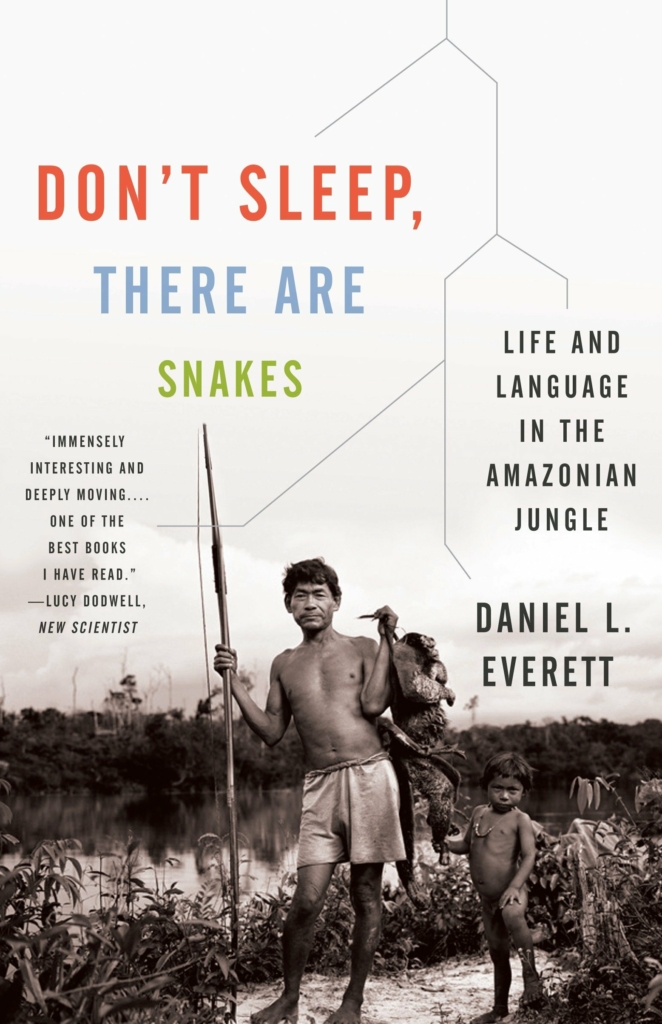
Everett’s 2008 book about the “nature of language, thought and life itself” describes his fieldwork in the Pirahã community, and his fascination by the local tribe’s language and its cultural and linguistic implications. The book elaborates on many specifics of the Pirahã’s lifestyle, like having no counting system, no fixed terms for colour, no concept of war and no personal property. The author also tells his personal story of how he came to the village as a religious man hoping to convert the locals to Christianity, but instead ultimately lost his faith and devoted his life to the science of linguistics. Part passionate memoir, part scientific exploration, Everett’s life-changing tale is a riveting look into the nature of language, thought and life itself.
You experienced submissive learning while staying with the isolated community of Pirahã people near the Amazon river in Brazil. What are the lessons you learned, and that you think the rest of the world could take from the Pirahã people?
Self-reliance and the realisation that I am responsible for my own well-being. Even the children start to learn this very early on. The parents love them but expect their children to contribute and get some of their own food, it’s extremely important for the Pirahã: I do what I do because I am responsible to myself.
The next thing is their dramatic happiness. Pirahã are very happy people who spend a lot of time smiling, joking and laughing, and very rarely is it a pretence. When I tell them about depression and suicide it’s difficult for them to understand these concepts because they don’t face those problems. Not because their life is simple – they have a lot of hardship too, they see their children die young, they are threatened by wild animals, etc. They know danger and sorrow, but they deal with it very effectively.
Finally, just the ability to enjoy nature every day. Pirahã are at one with nature and they know everything about it. They know all the names of trees, they know where every animal lives and how it behaves. Many of us go through our lives not paying attention to what is around us. Their knowledge of nature contributes to their self-resilience.
If we don’t live in the jungle but in a city, what can we do to get closer to that kind of self-reliance and happiness?
The Pirahã don’t worry about the future. They don’t spend time talking about things in the past. That’s the lesson to take – to just do our best on a daily basis. I don’t worry about mistakes I made in the past, I don’t worry about what my career’s going to be in a year. Realising that I need to be responsible for what is happening to me now really helped me. Sure, I need to think about the future occasionally, but I don’t have to worry about it. That’s beyond my control.
When you listen to Pirahã stories, they don’t have myths, they don’t talk about creation, they have no concept of Gods, there are no words in their culture to relate to specific time. They don’t even have a word for yesterday or tomorrow, they have a word for “other day” which can be both. Their language and their culture work together to avoid reference to time or things that make us worried.
“The Pirahã don’t worry about the future. They don’t spend time talking about things in the past. That’s the lesson to take – to just do our best on a daily basis.”
“I’m worried that I might lose my job tomorrow”. Well, you can do nothing about tomorrow, you can only do your job today as best as you can and prepare yourself. Every day the Pirahã are improving what they do and becoming better. I said to them: “Your land could be invaded some time”. They don’t worry about that. They just say that the jungle is very big and they can go to other parts. It’s typical for our cultures and society to become preoccupied about being in one place and doing one thing, rather than recognising that as human beings we are the most adaptable when in nature.
In my book I write about the Homo erectus, the first human species that left Africa and saw the world. And in an extremely short period of time they were all over the world and doing well. We have the self-reliance, the preparedness, the readiness to live wherever.
Did Homo erectus invent language?
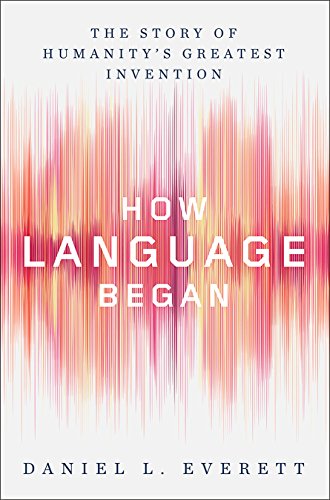
Daniel Everett's book How Language Began: The Story of Humanity's Greatest Invention is an evolutionary story of language, from the earliest speaking attempts by hominids to the more than seven thousand languages that exist today. Everett describes how Homo erectus invented language two million years ago, and the following species of Homo neanderthalensis and Homo sapiens were then born into a linguistic world.
Pirahã know the values of happiness and love. These things are in our culture as well. But are there any differences in how they are realised between these two cultures?
Our culture focuses on material acquisition, greater individual wealth, and success in some external sense. We are similar and it comes from our biology – we all have a desire for love, companionship and happiness.
When I arrived at the Pirahã to tell them about God and Jesus and that one can only find happiness through Christianity, I believed that only through Jesus and religion could we be free of all fears and find purpose. Yet I found that the Pirahã have shown more love than most people I have ever known.
If you earn their trust and sit with them, someone will always be touching you, smiling at you, sitting with you and asking you questions and showing you their love for their children. Because that’s what they are focused on. They are not going to show you how much fish they’ve accumulated, and they don’t kill a lot of animals so that they can preserve lots of meat. When I asked them why they don’t smoke or salt meat to preserve it for the future, one Pirahã said to me: “I store my meat in the belly of my brother. When I give him food, he will give me food. That’s how we preserve meat – we take care of each other.”
I realised that they’re the ones that should be missionaries. They’re the ones that have the answers that I thought I was there to give them. I have seen many pastors and missionaries, and I haven’t seen any as well-adjusted, happy and psychologically secure as the average Pirahã. That example just made me realise that my message is not going to transform them, they were already there – if not ahead of me. But they also always gave me evidence. They are hunters and gatherers in the Amazon, but they are the opposite of superstitious.
“When I asked them why they don’t smoke or salt meat to preserve it for the future, one Pirahã said to me: “I store my meat in the belly of my brother. When I give him food, he will give me food. That’s how we preserve meat – we take care of each other.”
Christianity is based on believing in things we can’t see or question. But they wanted to know who saw Jesus? If you don’t know anyone who saw and talked to Jesus why would you tell us about him? If you tell them something they assume that you have direct evidence. They required more evidence than I had.
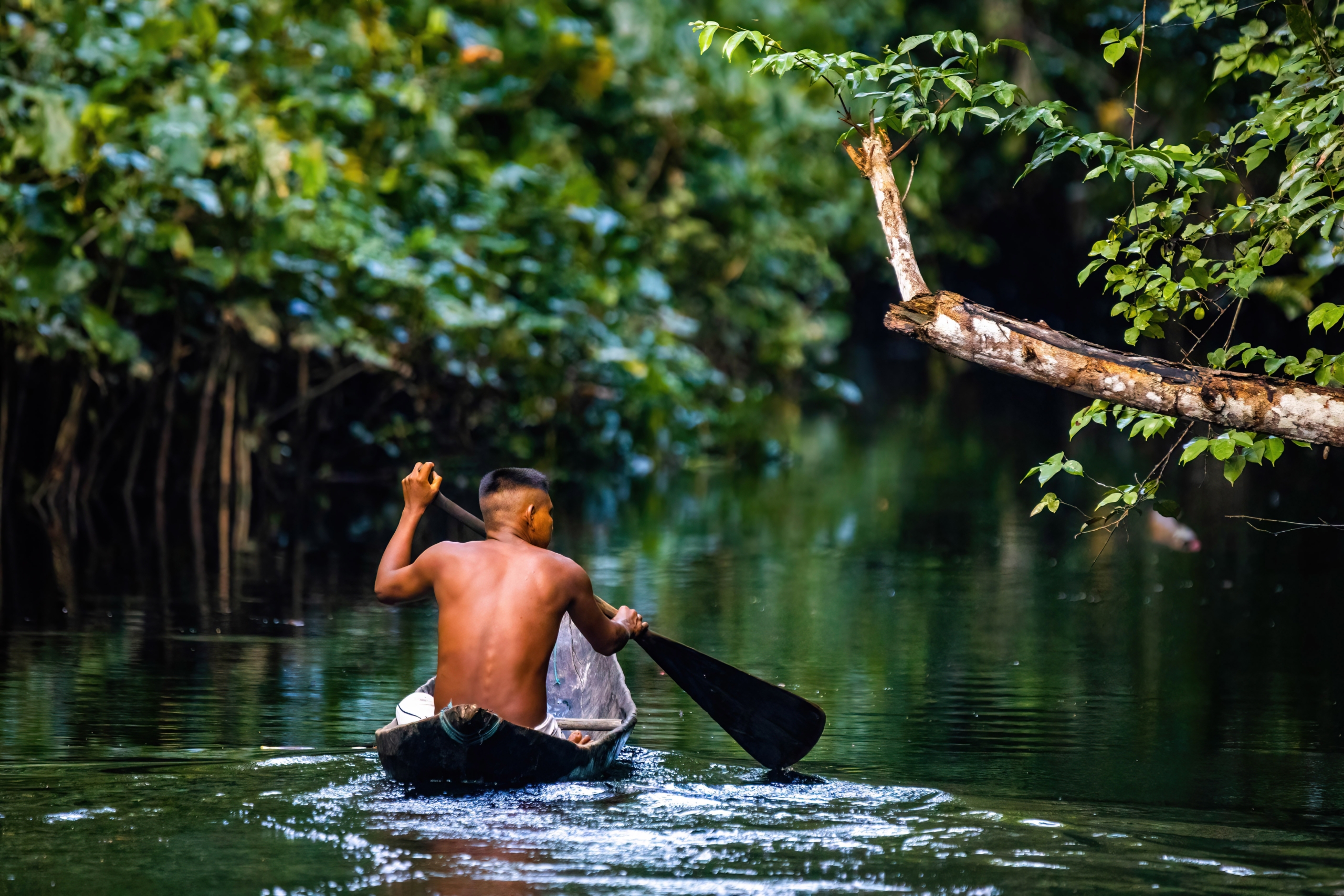
In your book you mention several emotions that Pirahã have in common with other cultures, such as grief or anger, but that they treat it differently.
I have been there when people have died. I remember a young baby died of malaria. Everyone came to sit by the baby and people were crying and the father was crying and I helped him dig the grave for the baby. But afterwards people would talk like normal. They realise that death is a natural part of human existence. It doesn’t do anybody any good if I just keep on grieving. I have to get over it and go back to life. We all live and die but we have a responsibility to each other.
On the other hand, the Pirahã have a strong concept of sin and what is inappropriate to do and show. Anger is one of those things. It’s inappropriate to show anger, that’s not acceptable. In the village you don’t see anger, men don’t fight, parents never spank their children.
The worst case scenario I have seen in the Pirahã community was when a young man killed a non-Pirahã. The other Pirahã made him live by himself. Because by committing the murder he endangered the whole community. They didn’t want people killed. They all know how to kill, they kill animals to eat, but they don’t like to shoot. They don’t show violence to other people. If a threat comes to the village they would just leave. But if a Pirahã is violent, that person is kicked out of the village.
It really sounds like the Pirahã like action, not words. Do you have any examples of how the Pirahã replace the concept of verbally acknowledging things?
If I arrive in the village and give you a fish hook, which I know that every man always wants, you might say: “Oh this is a really good fish hook,” or “Thank you”. Pirahã are not going to say thank you because they don’t have a word for it. But if they catch a fish, they will give me one. It’s reciprocal – I help you, you help me. That’s their way of saying thank you.
Another example – if you arrive in their village, you don’t say “Hello”. You don’t say “I’ve arrived” nor “bye bye” or “I am going” when leaving. These are all obvious things and they don’t need words for them.
In our culture if I see you walking down the street and say “Hi”, it actually means that I acknowledge you as a person. If I say “How are you”, I probably don’t really want to know how you are.
Instead of this, Pirahã sit around at night and they groom each other, which used to be very common amongst human societies. They’ll go through each other’s hair and look for bugs and things. You’ll see a whole line of people doing that and that’s their way of saying thank you. They do all that through physical contact.
How Pirahã crashed the “universal grammar” concept
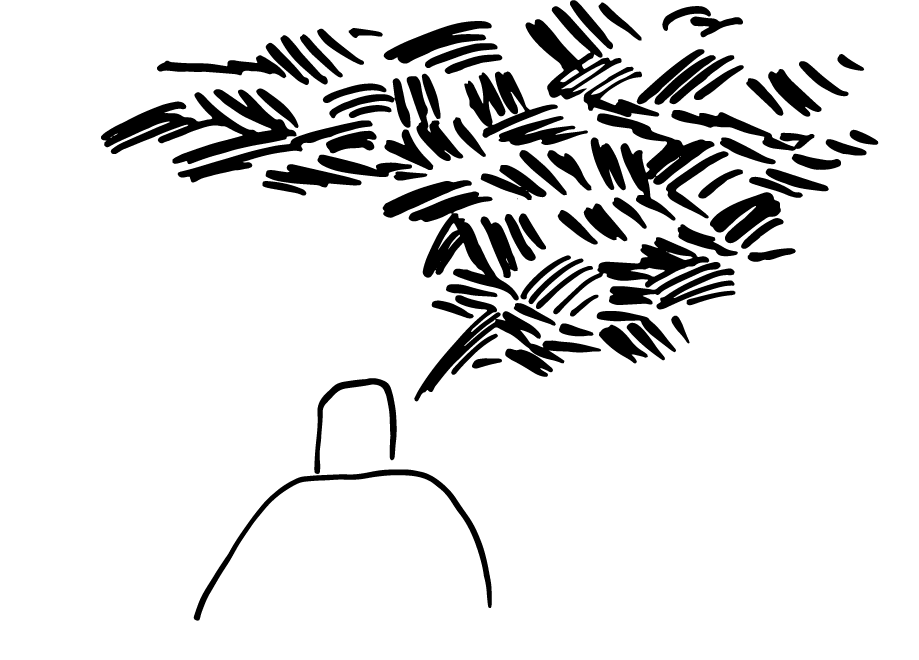
Universal Grammar is a theoretical concept proposed by Noam Chomsky, suggesting that every language has some of the same rules. But according to Everett's research of Pirahã, their language defies all the logic of modern linguistics – including universal grammar. Everett stated this conclusion in an article published in the Current Anthropology Journal in 2005; A statement that caused a controversy in the linguistic world.
It sounds like we lost touch and introduced artificial ways of acknowledging presence?
Yes, when I say “Hi” it’s like patting you on the back. Whereas if I just pat you on the back, that’s better – according to the Pirahã. And even in Brazilian culture that’s quite common. If I am talking to a woman, she will most certainly touch me when she’s talking. Nothing intended by that whatsoever. For our culture it’s almost shocking, but when you get used to a culture where they do that, it’s so natural and so comfortable and it really makes you feel good and that you belong.
As a linguist you have also discovered different concepts of perceiving reality, with names that are based on totally different models than those used in our society. For example, the concept of kagi – something that belongs together.
That’s one of those things that shows us that our way of conceptualising the world is not the only way to see the world. When I first arrived I thought they would have a simple word for wife/husband. I saw a guy with his wife and I asked him “What do you call her?”, and he gave me the word kagi. I asked: “What does she call you?”, “Kagi” he said. I thought it just means “spouse”. Then I saw a dog coming into the village with a monkey on its back. And they said “Here comes the monkey on top of its kagi”. I thought they were joking and saying the monkey’s spouse is the dog. And then I was serving beans and rice and I put the beans on top of the rice and they say the same expression. As I began to investigate this word more and more I found it doesn’t mean spouse, it doesn’t mean beans, but instead that which is usually associated with something.
My spouse and I are normally associated together. Beans and rice are normally associated together. This monkey and that dog are always together. It wasn’t marriage, it wasn’t beans and rice, kagi was the expected partner. Which is a very different kind of concept than ours.
“Thinking about the world in broader categories is an exciting thing to do. It makes you realise that the categories our language gives us affects the way we think.”
Also, they don’t really have a concept of fact and fiction; dreams and daily experience. These are all kinds of experiences. For example, a dream in which I see myself on the moon. For Pirahã, they don’t say it was fiction, they say “I was on the moon while I was sleepy.” They know they did it when they were sleeping, they’re not claiming that they went to the moon, but it was still an experience.
Thinking about the world in broader categories is an exciting thing to do. It makes you realise that the categories our language gives us affects the way we think. We think about fact and fiction, spouses and rice. But Pirahã are showing us that you can think in wider categories.
Photos: Daniel Everett's Archive, Shutterstock
Illustrations: Ivana Cobejova


